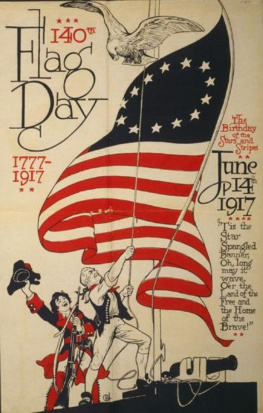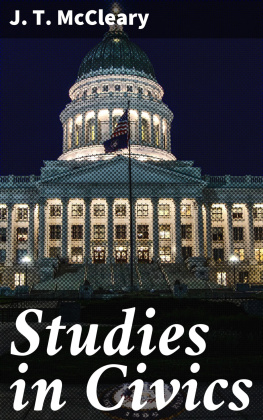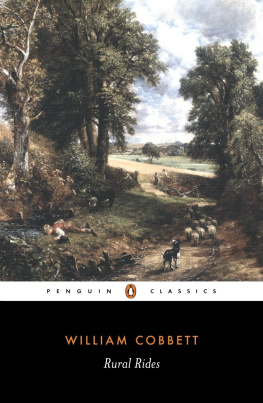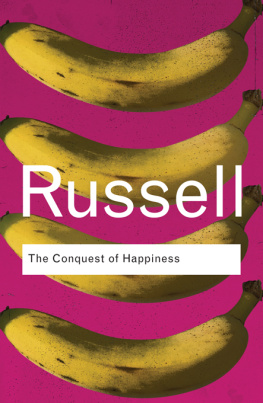RURAL EDUCATION SERIES
EDITED BY HAROLD W. FOGHT
PRESIDENT SOUTH DAKOTA TEACHERS COLLEGE
COMMUNITY CIVICS AND RURAL LIFE
BY ARTHUR W. DUNN
SPECIALIST IN CIVIC EDUCATION, UNITED STATES BUREAU OF EDUCATION; AUTHOR OF "THE COMMUNITY AND THE CITIZEN"
INTRODUCTORY NOTE
This book, like the author's earlier one, The Community and the Citizen, is a "community civics" text. Two purposes led to the preparation of this second volume. The first was to produce a text that would meet the needs of pupils and teachers who live outside of the environment of the large city. Training for citizenship in a democracy is a fundamentally identical process in all communities, whether urban or rural. But, if it really functions in the life of the citizen, this process must consist largely in deriving educational values from the actual civic situations in which he normally finds himself. Moreover, instruction that relates to matters that lie beyond immediate experience must nevertheless be interpreted in terms of that experience if it is really to have meaning. At least half of the young citizens of America live in an environment that is essentially rural. Hence their need for civics instruction that takes its point of departure in, and refers back to, a body of experience that differs in many ways from that of the urban citizen.
This does not imply that urban conditions should be ignored in the civic education of the rural citizen. On the contrary, one of the things that every citizen should be led to appreciate is the interdependence of country and city in a unified national life. In the present volume emphasis is given to this interdependence. For this reason, and because of the fundamental principles which have controlled the development of the text, it is believed that the book may perform a distinct service even in city schools.
The second purpose in undertaking the present book has been to make as obvious as possible the elements which, in the author's judgment, characterize "community civics" and give it vitality. The Community and the Citizen was a pioneer among texts that have sought to vitalize the study of government and citizenship. The term "community civics" became current only at a later time to designate the "new civics" which that book represented. It seems to the author, however, that many teachers and others have seized upon some of the more incidental, even though important, features of the "new civics" without apparently recognizing its really vital characteristics.
For example, the "new civics" performed a real service in giving emphasis to the study of the "local community," which was being sadly neglected ten or fifteen years ago. It was this emphasis, doubtless, that gave rise to the name "community civics." But "local study," even though labelled "community civics," may be, and often is, entirely lacking in vitalizing features. On the other hand, the vitalizing methods that should characterize community civics may be applied to the study of our "national community," and even of the embryonic "world community,"and should be so applied in any "community civics" that is worthy of a place in our schools in this critical period of national and world history. The real significance of the term "community civics" is to be found in its application to an interpretation of the COMMUNITY-CHARACTER of national and international life equally with that of town or neighborhood.
Another service that community civics performed was in introducing certain elements of social or "sociological" study into grades as low as the grammar school. This has sometimes led to the description of community civics as "elementary sociology." The Community and the Citizen was perhaps the first "civics" textbook to include such "sociological" material. So far as that book is concerned, at least, the "sociological" material was included PRIMARILY to afford a viewpoint from which the better to interpret GOVERNMENT AND CITIZENSHIP. This point seems often to be missed, with the result that in some schools we find a more or less vitalized "social study" labelled "community civics," FOLLOWED BY a formal study of government that shows no obvious, organic relation to the earlier study. Whatever else "community civics" may accomplish, one of its foremost aims should be TO MAKE GOVERNMENT, INCLUDING THAT OF THE NATION, MEAN SOMETHING TO THE YOUNG CITIZEN. In the present book the author has endeavored to keep this aim prominent in the mind of the teacher. It is hoped that the organic relation of the last few chapters, which deal explicitly with governmental mechanism and operation, to the earlier chapters will be obvious.
The underlying, vitalizing features of community civics may be summed up as:
1. THE DEMONSTRATION TO THE YOUNG CITIZEN, BY REFERENCE TO HIS OWN OBSERVATION AND EXPERIENCE, OF THE MEANING OF HIS COMMUNITY LIFE (LOCAL AND NATIONAL), AND OF GOVERNMENT IN ITS RELATION TO THAT LIFE;
2. THE CULTIVATION OF CERTAIN HABITS, IDEALS, AND ATTITUDES ESSENTIAL TO EFFECTIVE PARTICIPATION IN THAT LIFE THROUGH GOVERNMENT AND OTHERWISE.
The aim of the following text is to fix in the pupil's consciousness a few essential ideas, which will help to determine his ideals and attitudes, by a judicious USE of facts, which will thereby be more readily remembered and understood. "The most important element of success in community life is TEAM WORK; and team work depends, first of all, UPON A COMMON PURPOSE". The controlling ideas throughout the following chapters are:
1. The common purposes in our community life;
2. Our interdependence in attaining these common purposes;
3. The consequent necessity for cooperation (team work);
4. Government as a means of securing teamwork for the common good. These ideas are set up in the first few chapters and exemplified in the remaining chapters. They are easily grasped by young citizens when DEMONSTRATED by reference to their own observation and experience, which the text and the accompanying topics seek as far as possible to compel. The last few chapters contain an analysis of our governmental mechanism which seeks to answer the question, How far does our government provide the organization, the leadership, and the control over leadership necessary to secure the teamwork which the preceding chapters have shown to be essential?
The present volume is larger than The Community and the Citizen. The author believes that this is an advantage, especially for pupils in communities where supplementary materials are not so easily available. The increased length is due chiefly to the liberal incorporation of concrete illustrative and explanatory matter. Young students need larger textbooks, provided the additional matter clothes the skeleton with living flesh.
Whether based on this textbook or some other, however, community civics cannot be successfully taught if it is made primarily a textbook study. The word "demonstration" has been used advisedly in the paragraphs above as applied to the ideas to be taught. The text sets up ideas, interprets and exemplifies them; but "demonstration" can be made only as the pupils draw upon their own observation and experience. Hence, numerous SUGGESTIVE topics are interspersed throughout to divert attention from the text and to direct it to the actualities of the pupils' experience. Even the topics should not be followed literally in every case, but should be diversified to meet the needs and opportunities of the occasion. But to "omit" such studies as suggested by the topics is to negate the value of community civics.








